Will Sam bring surprises to Web3 from ChatGPT to WorldCoin?
Will Sam bring Web3 innovations from ChatGPT to WorldCoin?On May 26th, the company behind the Worldcoin project announced that it has raised $115 million in investment, led by Blockchain Capital with follow-on investments from a16z, Bain Capital Crypto, and Distributed Global. One of the project’s co-founders is Sam Altman, the CEO of OpenAI.
Sam’s ChatGPT has made him a highly sought-after star. How did Sam enter the cryptocurrency industry and create Worldcoin?
01 The Silicon Valley Story Reenacted
Sam was born in a Jewish family in Chicago, USA in April 1985. He had a great interest in computers from an early age and owned his first computer at the age of 8. He then became interested in programming and eventually majored in computer science at Stanford University at the age of 17. To sum up what happened later in one sentence, he dropped out of Stanford University at the age of 19 to start a business. The company he founded, Loot, was valued at up to $170 million at one point. At the age of 28, he became the president of Y Combinator (YC), a well-known startup incubator. At the age of 29, Sam was selected for Forbes’ top 30 risk capitalists under the age of 30. At the age of 34, he gave up his presidency and devoted himself to the entrepreneurial journey of OpenAI.
- Exploration of Legal Issues Arising from “Digital Collections” in Practice
- What is the current state of development of on-chain government bonds? We have studied 5 agreements.
- Interpretation of Trust Minimization Middleware by Distributed Capital Researcher: Consensus Verification and Bridging
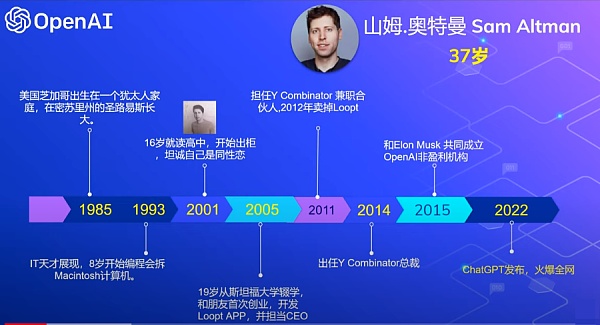 Source: admin
Source: admin
It’s just a standard Silicon Valley story template-“the successful road of a school dropout,” consistent with the stories of dropouts and entrepreneurs like Jobs, Gates, and Zuckerberg who don’t play by the rules.
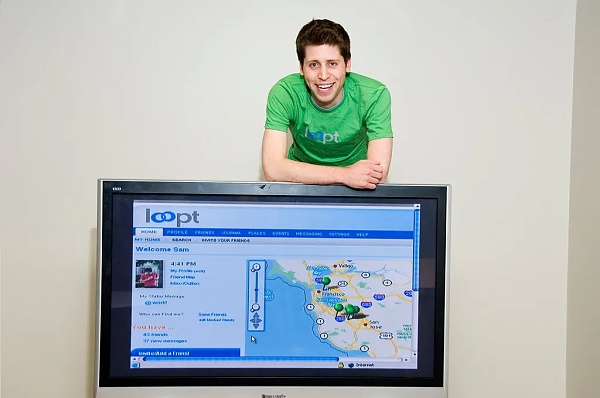 In 2007, Sam came to the Loopt office, Source: The New York Times
In 2007, Sam came to the Loopt office, Source: The New York Times
02 From chatGAT to Worldcoin
Actually, ChatGPT originated from Sam’s tenure as president of YC. As the president of a top venture capital firm, Sam met many technology industry giants, one of whom was Musk. In 2015, Sam and Musk founded the artificial intelligence company OpenAI together, with the goal of building a non-profit, human-friendly AI and then releasing its source code to the world for sharing and benefiting humanity.
However, in 2018, Musk left OpenAI, claiming at the time that he wanted to avoid any conflicts of interest with Tesla, which was developing its own AI technology for its autonomous driving system, and would compete with OpenAI for talent. But there are also reports that Musk’s real reason for leaving may have been due to a failed internal power struggle. The specific reason is unknown to the outside world. In March 2019, Sam resigned from Y Combinator and began to devote himself wholeheartedly to the development of OpenAI. In May 2019, under Sam’s leadership, OpenAI transitioned from a non-profit business to a for-profit company.
Following this, Microsoft invested $1 billion in OpenAI in 2019. In January 2023, Microsoft announced another investment in OpenAI for several billion dollars, although no specific details were released and the investment is thought to be around $10 billion. Additionally, ChatGPT has been integrated into the Bing search engine. So far, OpenAI has released two generative AI tools, DALL-E and ChatGPT, during Sam’s tenure as CEO. Both are tools that allow robots to create their own artwork and text based on input information. DALL-E was released on January 5, 2021. 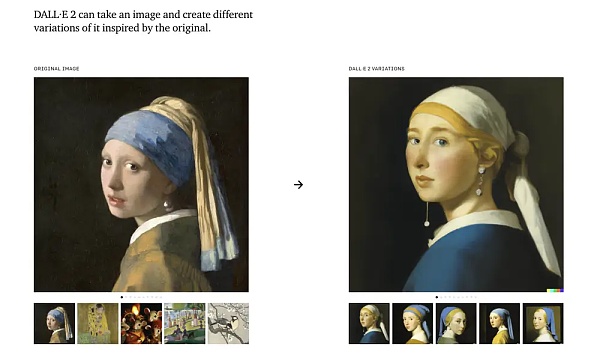 However, what really made OpenAI famous was the release of ChatGPT. Within five days of its release, over a million players had joined, a milestone that took Facebook 10 months to reach. Meanwhile, in 2019, when Sam left Y Combinator and became fully focused on developing artificial intelligence, he realized that the future of human development requires global digital identity interconnectivity. Thus, the idea of Worldcoin was born. In 2020, Sam brought in two people, Max and Alex Blania, to co-create the Worldcoin project.
However, what really made OpenAI famous was the release of ChatGPT. Within five days of its release, over a million players had joined, a milestone that took Facebook 10 months to reach. Meanwhile, in 2019, when Sam left Y Combinator and became fully focused on developing artificial intelligence, he realized that the future of human development requires global digital identity interconnectivity. Thus, the idea of Worldcoin was born. In 2020, Sam brought in two people, Max and Alex Blania, to co-create the Worldcoin project.
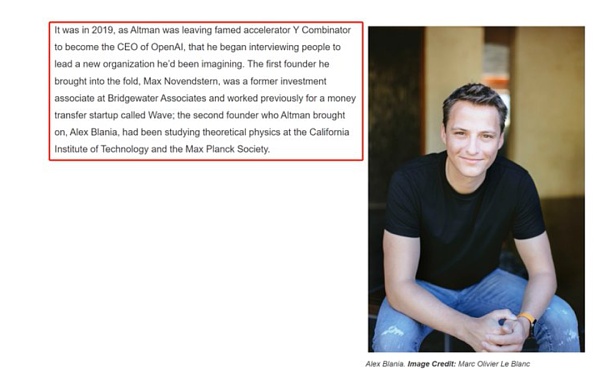 Translated: It was in 2019, when Sam left the famous incubator Y Combinatol to become CEO of OpenAl, that he began interviewing various talents to develop the new organization he had always envisioned. His first co-founder Max Novendstern was a former investment assistant at Bridgewater Associates and had previously worked at a remittance start-up called Wave. His second co-founder, Alex Blania, had been studying theoretical physics at the California Institute of Technology and the Max Planck Institute.
Translated: It was in 2019, when Sam left the famous incubator Y Combinatol to become CEO of OpenAl, that he began interviewing various talents to develop the new organization he had always envisioned. His first co-founder Max Novendstern was a former investment assistant at Bridgewater Associates and had previously worked at a remittance start-up called Wave. His second co-founder, Alex Blania, had been studying theoretical physics at the California Institute of Technology and the Max Planck Institute.
The goal of Worldcoin is ambitious. The project aims to use eye scanning technology (Orb), also known as iris scanning technology, as a global identification mechanism to lower barriers to entry and allow people around the world to easily access cryptocurrency assets. The vision is to build the world’s largest and most equitable digital identity and digital asset system, and to practice a “universal basic income” social experiment, in which people do not need to work, but only need a World App to receive money and meet basic needs, thus achieving “billions of people out of poverty”. According to official information, Worldcoin mainly breaks down its goals into three parts: creating a global identity ID, a global asset, and a wallet that carries identity ID and assets, which correspond to three elements: DID, Token, and Wallet. Specifically, WorldID: Orb scans the iris to establish a personal identity, which is mainly for privacy protection and identity proof; WorldCoin: issues a total of 10 billion Tokens, becoming the first Token distributed free of charge to people worldwide, and plans to issue it to 1 billion people, built on the OP super chain; WorldAPP: a wallet for global payments, purchases, and transfers, realizing people’s UBI (Universal Basic Income).
03 Stuck in a bottleneck
Despite being the focus of attention and receiving huge financing since its release, Worldcoin, with its ambitious ChatGPT halo, has encountered many doubts and obstacles: 1. First, progress is slow.
At the end of 2021, Worldcoin announced that it would launch its mainnet in 2022 and plans to cover 1 billion users by 2023. However, it did not fulfill the promise. The number of Worldcoin users only exceeded 1 million between 2021 and 2022, and during this period, it also encountered public opinion whirlpools such as privacy problems and paid promotion, and even faced a standstill. Now, Worldcoin’s mainnet launch plan has been postponed to the first half of 2023. Although the WorldAPP was officially launched on May 8th this year, the Worldcoin App covering about 2 million users, including test versions, is still far from the target.
2. Second, it has been criticized for privacy issues and even accused of exploiting the poor. On the one hand, by scanning the iris of everyone, collecting biometric information to achieve identity verification, Worldcoin walks on the edge of personal information protection related laws, and whoever scans their own eyes with this instrument is qualified to receive the promise of Worldcoin Token, which has not been fulfilled so far.
As for the circulation of Worldcoin Tokens, what value can be generated for the recipient and how to generate value is also unclear. Is it distributed income from AI? Or by providing some kind of service to third parties?
 Orb iris biometric identification device
Orb iris biometric identification device
On the other hand, because Worldcoin’s core business model is to achieve universal basic income through data collection to offset the unemployment loss caused by artificial intelligence, it has been questioned. However, according to official data, most of Worldcoin’s registered locations are relatively underdeveloped countries, such as Africa and Latin America. The number of countries and regions participating in its testing is 24, of which 14 are developing countries, and 8 countries are in Africa, Cambodia and Kenya, and there may be deceptive marketing methods in the collection process, such as failing to obtain meaningful informed consent, collecting more personal data than it admits, etc. Although according to official statements, the data scanned by Orb will not be stored and maliciously used by Worldcoin, and ZK technology will be gradually adopted for higher intensity security protection. But in fact, in some areas, its operating contractor will adopt incentive measures to encourage local residents to submit data, and even data trading has appeared. In order to receive possible Token airdrops, in some parts of Southeast Asia, there are phenomena that the iris of uninformed villagers is purchased for $30 or lower to help complete app registration. It is a worth weighing issue to put the biometric information of people in developing countries at great risk to solve the problem of digital identity. Therefore, some people say that this is the exploitation of the poor. 3. Finally, how to break through the contradiction between international supervision and data processing at present. According to the EU GDPR (General Data Protection Regulation), any data operating or involving EU residents within the EU is subject to EU regulation, and failure to fully protect data will be fined. Worldcoin, which aims to be the first global encryption project for users, is known to have a certain degree of conflict between its global operation and EU regulations, and how to handle global data has not been fully clarified. In addition to the above problems, there are also some negative voices in the industry. According to news in May, Hudson Jameson, a former developer of the Ethereum Foundation, tweeted that WorldCoin’s project plan was “unrealistic and scary,” he believes that “the project has not demonstrated how they deal with huge social and economic issues that vary by region, the economic distribution of Worldcoin Tokens, and how to create a fair global asset, whether they have analyzed how to prevent the gap between rich and poor in certain regions. WorldCoin seems to be a VC-invented product to solve global problems, but except for developing cool technology, they know nothing about factors that solve problems. I don’t think WorldCoin will succeed.” Hudson is not the only one who doubts the future of Worldcoin. Tim Beiko, a core developer of Ethereum, also expressed his doubts, saying that “cheap + open access FaceID” may make Worldcoin “obsolete.” However, the lead investment Blockchain Capital believes that Worldcoin may become the largest entry point for encrypted assets, and World App may become the most widely used encrypted wallet. Blockchain Capital shareholder Spencer Bogart pointed out on Twitter that Worldcoin is a widely misunderstood project. World ID has a unique opportunity to “establish and expand new privacy protection, allowing any application to distinguish between humans and robots. With this ability, it can improve the user experience of the Internet, open up countless new functions and applications, and help restore trust in digital communities (consciously talking to humans rather than robot armies).” 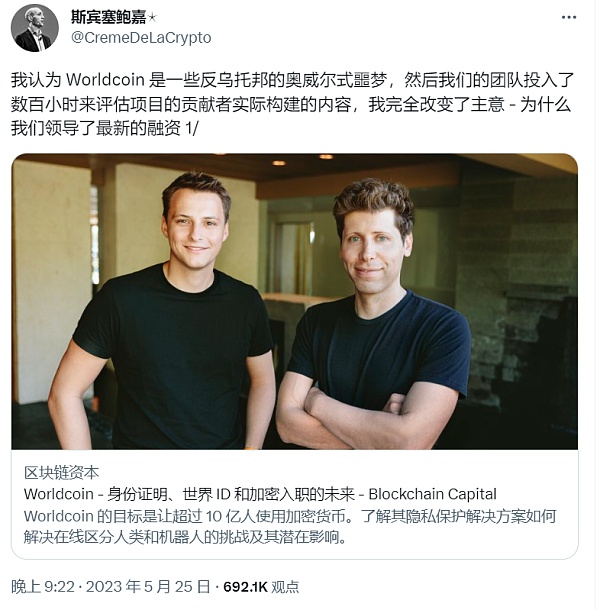 But how Worldcoin will develop specifically, whether it can break through the dual difficulties of morality and economy, is still uncertain.
But how Worldcoin will develop specifically, whether it can break through the dual difficulties of morality and economy, is still uncertain.
04 About future grand vision
From a publicity standpoint, Worldcoin doesn’t seem to be that important to Sam as he is neither the Worldcoin CEO nor does he often mention the project directly on his Twitter or blog. However, Sam is very concerned about the world order, wealth distribution, and government governance on his blog. But currently, people still have reservations about the token distribution of Worldcoin and the ideal of “universal basic income”, so the prospect of using Worldcoin to achieve a prosperous world is still unclear. In addition, in terms of understanding the direction of future technological innovation, Sam Altman is not just betting on AI and encryption. The most mentioned technological innovation direction in Sam’s blog is energy. In 2014, Sam Altman also listed the technology fields that Y Combinator favored on his blog, with energy ranking first, followed by AI, biotechnology, and other fields. Therefore, after officially joining Open AI, Sam also invested in some energy and biotechnology companies. In 2021, Sam led Helion’s E round of financing with 375 million U.S. dollars, which is the largest investment Sam Altman has made so far. In March 2023, Sam Altman invested 180 million U.S. dollars in ReviBio, a company that focuses on anti-aging and extending human life. Some people interpret Sam’s investment as a four-step plan for the future: that OpenAI will acquire most of the world’s wealth by creating AGI (general artificial intelligence), and then redistribute this wealth to people, and solve human limits through Helion, ReviBio, and Worldcoin. The problem of identity verification and resource allocation in the future world. However, although ChatGPT is currently popular, it is opposed by AI critics, and the future of Worldcoin is still uncertain, and the other projects currently have no major movements, so this ideal is still grand and distant for now.
We will wait and see whether Worldcoin can break through the siege and whether Sam’s grand vision can be realized together.
We will continue to update Blocking; if you have any questions or suggestions, please contact us!
Was this article helpful?
93 out of 132 found this helpful
Related articles
- Yuga Labs May Data Report: The Darkest Moment for NFT Industry Leader?
- Celestia: Modular Data Availability for OP Stack
- Encrypted wallet developer Demox Labs secures $4.5 million in funding led by HackVC
- Circle will launch native USDC on Arbitrum on June 8th.
- Unprecedented demand for AI computing power, what is the role of Web3?
- Concept and Application of Threshold Signatures
- Overview of the NFTFi ecosystem




